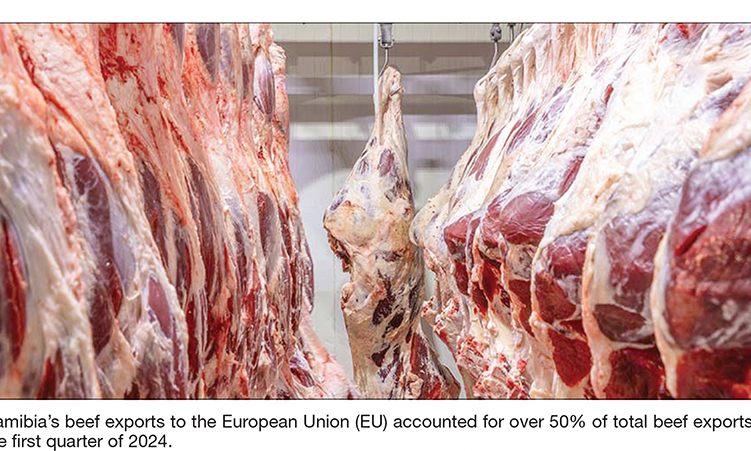Namibia is unlikely to face significant impacts from the European Union Deforestation Regulation (EUDR) due to the country’s limited forest coverage.
This is according to Oxford Economics Africa economist Theo Klein.
Klein highlights the importance of Namibia’s beef exports to the European Union (EU), which accounted for over 50% of total beef exports in the first quarter of 2024.
This comes after the EUDR, aimed at preventing the purchase of goods linked to deforested land post-2020, targets commodities such as soy, rubber, palm oil, timber, cattle, cocoa and coffee.
Klein says Namibia’s beef industry is well-positioned to maintain its market access, as the regulation does not heavily impact regions with minimal forest dependency.
The regulation, which was initially set to take effect earlier, has been extended to December 2025 for large traders and June 2026 for smaller traders, following concerns from African governments and EU member states.
“African countries are generally unprepared to fully comply with the EUDR, so the extended deadlines provide some breathing room,” Klein says.
While Namibia is largely insulated from the EUDR’s effects, East African nations such as Kenya, Uganda and Tanzania face greater challenges due to their reliance on EU markets for coffee exports.
West and central African countries, which supply 70% of the world’s cocoa, may have stronger leverage but must also address deforestation compliance.
“The regulation’s focus on deforestation-free goods is a significant challenge for smallholder farmers, but larger operators in East Africa may achieve compliance by the end of next year,” Klein adds.
Despite these challenges for other African regions, Klein emphasises Namibia’s unique position.
“Namibia’s beef exports to the EU remain secure under the EUDR framework, thanks to the country’s minimal forest coverage,” he says.
Stay informed with The Namibian – your source for credible journalism. Get in-depth reporting and opinions for
only N$85 a month. Invest in journalism, invest in democracy –
Subscribe Now!










